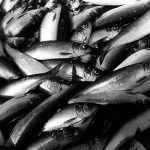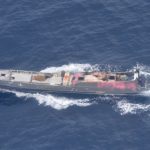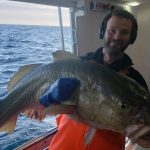Nearly 10 million Africans depend on the fishing industry for their livelihoods. In order to secure incomes, the continent’s fish stocks and marine ecosystems need to be preserved. With this in mind, the Marine Stewardship Council (MSC) has opened an office in South Africa and hired new staff to implement its fishery certification and seafood eco-labelling programme for wild capture fisheries in the Southern Africa Development Community.
Working in partnership with the seafood industry, the MSC’s aim is to use its eco-labelling and fishery certification programme to help transform how the world’s seas and oceans are worked, and to influence the choices people make when buying seafood, so that responsible management is rewarded and the seafood industry contributes positively to the health of the oceans.
“Sustainable fishing in Africa can greatly contribute to food security, poverty reduction and economic development. The MSC is committed to working with Southern African countries on getting African fisheries ready for certification to the MSC standard. Eco-labelled seafood is in great demand and certification to our standard could help Southern African fisheries access markets and contribute to safeguarding fish stocks for the future,” says Oluyemisi Oloruntuyi, MSC’s Developing World Programme Manager.
The new MSC regional office is based in Cape Town, South Africa, and is staffed by Martin Purves, MSC’s Southern Africa Programme Manager. Martin will focus on engaging a broad range of stakeholders, including local fishing communities, government agencies, conservation groups and the private sector in Tanzania, Mozambique, Namibia, Madagascar and South Africa to increase awareness of the MSC programme and its benefits.
Martin comments: “Southern African fisheries play an important role in providing food for domestic markets and generate much-needed export income. The MSC eco-label could potentially increase export returns and thus help raise peoples’ standard of living. I am very excited to be part of the MSC mission to promote sustainable fishing practices, which not only benefits fishing communities but also ensures the long term health of our marine resources.”
Prior to joining the MSC, Martin gained long standing experience working as a fisheries consultant, a research scientist and a scientific observer.
The MSC is especially grateful to the ComMark Trustfor their support that has enabled the MSC to set up and staff an operational base in Africa.
The MSC’s regional office in South Africa can be contacted at:
Postal Address:
P.O. Box 7107
Roggebaai
8012, Cape Town, South Africa
Physical address:
Unit 19
Foregate Square
Table Bay Boulevard, Cape Town
Tel/Fax: +27 (0)21 4255086
Mobile: +27 (0)83 324 5828
Email: martin.purves@msc.org








